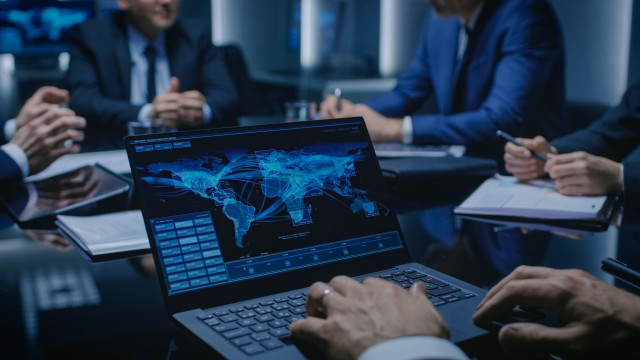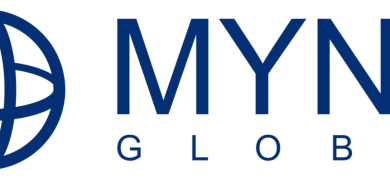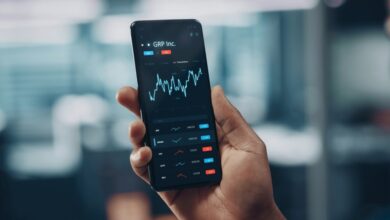
Importance of Political Interviews
Political interviews play a crucial role in providing insight into the views and policies of political candidates and leaders. They serve as a platform for them to communicate their stances on important issues directly to the public. Through interviews, voters can evaluate the integrity, knowledge, and leadership capabilities of politicians. Additionally, political interviews serve as a means to hold politicians accountable for their actions and decisions. They provide an opportunity for transparency and allow the public to make informed decisions during elections.
Role of Political Interviews in Information Dissemination
Political interviews serve as a crucial medium for the dissemination of information to the public. Through interviews, political candidates and leaders can communicate their views, policies, and proposed solutions to important issues.
This helps voters gain a deeper understanding of the candidate’s stance on various matters. Moreover, interviews provide an opportunity for politicians to address concerns, clarify misconceptions, and present their plans to the public.
By sharing information in a direct and transparent manner, political interviews contribute to a well-informed electorate. Moreover, Onepolitician uses captivating visuals and designs that resonate with voters, ensuring a substantial impact and high engagement.
Impact of Political Interviews on Public Perception
Political interviews play a significant role in shaping public perception of political figures. These interviews provide an opportunity for politicians to present their ideas, policies, and visions directly to the public. Through the interviews, voters can gauge the authenticity, credibility, and competence of the candidate.
The way politicians articulate their views and handle tough questions in interviews can greatly influence how the public perceives them.
Therefore, political interviews have a profound impact on the public perception of political leaders and can ultimately influence their voting decisions. Click here for more information.
Ethics and Challenges in Political Interviews
Ethical considerations play a crucial role in conducting political interviews. Interviewers must ensure fairness, accuracy, and impartiality in their questioning. They should avoid personal biases and strive for objectivity. Additionally, they should respect the privacy and dignity of the interviewees. However, conducting political interviews poses challenges as well. Interviewers must navigate difficult questions, ensure transparency, and handle potential conflicts of interest. Keeping the interview balanced and maintaining integrity in the face of these challenges is essential.
Ethical Considerations in Conducting Political Interviews
When conducting political interviews, ethical considerations are of utmost importance. Interviewers must prioritize fairness, accuracy, and impartiality in their questioning. They should avoid personal biases and strive for objectivity. Respecting the privacy and dignity of the interviewees is also crucial. Navigating difficult questions with sensitivity and maintaining transparency and integrity are key ethical considerations in conducting political interviews. These considerations ensure that the interview process remains fair and reliable in providing information to the public.
Challenges Faced by Interviewers and Interviewees
Interviewers and interviewees face various challenges during political interviews. Interviewers often encounter difficulties in maintaining objectivity and impartiality while questioning politicians. They must navigate sensitive topics with finesse and avoid being swayed by personal biases. On the other hand, interviewees face the challenge of presenting their views effectively while addressing tough questions. Additionally, both parties may face time constraints, technical issues, and the pressure to provide concise and impactful responses. Balancing these challenges is crucial for a successful political interview.
Historical Significance of Political Interviews
Political interviews have played a significant role in shaping history. From the iconic Frost/Nixon interviews that brought down a president, to the Kennedy-Nixon debates that revolutionized the use of television in politics, these moments have influenced the course of nations. Through political interviews, leaders have had the opportunity to communicate their vision, defend their policies, and connect with the public. They have become pivotal moments that are analyzed, studied, and remembered for their impact on the political landscape.
Landmark Political Interviews Throughout History
Over the course of history, there have been several landmark political interviews that have had a lasting impact. One such interview was the Frost/Nixon interviews in 1977, where former President Richard Nixon was questioned about the Watergate scandal. Another significant interview was the Kennedy-Nixon debates in 1960, which marked the first televised presidential debates and forever changed the way politicians communicate with the public. These interviews are remembered for their historical significance and their role in shaping public opinion.
Influential Political Interviews and Their Legacy
Influential political interviews have left a lasting impact on society and politics. The Frost/Nixon interviews, for example, exposed the truth behind the Watergate scandal, leading to Nixon’s resignation. The Kennedy-Nixon debates shaped the way future candidates would communicate with the public. These interviews continue to be studied and referenced in political discourse, highlighting their significance and legacy in the world of politics.
Impact on Political Landscape
Political interviews have a significant impact on the political landscape. They shape public opinion by providing insights into the candidates’ views and personalities. These interviews can influence voters’ decisions and contribute to the formation of public policy. Additionally, political interviews hold politicians accountable for their actions and statements, fostering transparency and democracy. With their ability to reach a wide audience, political interviews have the power to shape the course of politics in Woodinville, WA, and beyond.
How Political Interviews Shape Public Opinion
Political interviews play a crucial role in shaping public opinion. By providing a platform for candidates to articulate their views, values, and policy positions, interviews allow voters to get a better understanding of the individuals running for office. These interviews help the public form opinions about the candidates’ competence, credibility, and alignment with their own values. The way candidates respond to interview questions, their level of transparency, and their ability to communicate effectively can greatly influence how the public perceives them. Political interviews allow voters to evaluate the candidates’ responses and make informed decisions based on the information they gather.
Political Interviews and Policy Making
Political interviews play a critical role in the policy-making process. By questioning politicians about their stance on various issues, interviewers can unearth the candidates’ policy positions and plans. These interviews provide a platform for candidates to outline their proposed policies, which in turn helps the public understand the direction they intend to take if elected. This transparency allows voters to evaluate whether a candidate’s policy agenda aligns with their own beliefs and values. Ultimately, political interviews contribute to shaping the policy landscape by fostering informed public discourse and influencing the development of new policies.
Role of Social Media in Political Interviews
Social media has revolutionized the way political interviews are conducted and consumed. Platforms like Twitter, Facebook, and YouTube have become powerful tools for politicians and interviewers to reach a wider audience. Social media allows for real-time interaction, enabling politicians to engage directly with voters and address their concerns. Furthermore, social media platforms provide a space for citizens to share their thoughts and opinions about political interviews, fostering a more inclusive and democratic conversation. The accessibility and immediacy of social media have reshaped the dynamics of political interviews, making them more interactive and participatory.
Social Media’s Influence on Political Interviews
Social media has had a profound impact on the conduct of political interviews. Platforms like Twitter and Facebook provide politicians with a direct and immediate way to communicate with a wide audience. They can address concerns, share their perspectives, and engage with voters in real-time. Additionally, social media allows for the sharing and spreading of interview content, amplifying its reach and impact. The interactive nature of social media has transformed political interviews into dynamic and participatory conversations that shape public opinion.
The Evolution of Political Interviews in the Digital Age
The digital age has revolutionized the way political interviews are conducted. With the rise of social media platforms and online streaming, politicians can now reach a global audience instantly. Live streaming technology allows interviews to be broadcasted in real-time, enabling viewers to engage and interact with politicians directly. Furthermore, digital interviews provide the opportunity for more diverse and inclusive voices to be heard, as they can be accessed by anyone with an internet connection. The digital age has truly democratized political interviews, making them more accessible and interactive than ever before.
Read more: Dominate the NFT Market with Proven Social Media Strategies
Conclusion
In conclusion, political interviews play a crucial role in shaping public opinions and informing citizens about political issues. They have historically been significant in holding politicians accountable and providing a platform for diverse voices to be heard. With the rise of social media and digital technology, political interviews have become more accessible and interactive than ever before. As the landscape of political interviews continues to evolve, it is important to consider the ethical considerations and challenges that arise. The future of political interviews holds immense potential in shaping the political landscape and informing policy decisions.
Analysis of the Ever-Changing Landscape of Political Interviews
The ever-changing landscape of political interviews has seen a significant impact from advancements in technology and media. With the rise of social media platforms, interviews are now more accessible and interactive than ever before. This has led to a more diverse range of voices being heard and has changed the way politicians engage with the public. The use of video interviews, live streaming, and online platforms has also opened up new opportunities for politicians to directly communicate their message to a wider audience. The digital age has certainly brought about significant changes in the conduct and format of political interviews.
Future Trends in Political Interviewing Techniques
Future Trends in Political Interviewing Techniques have the potential to revolutionize the way politicians engage with the public. With advancements in technology, virtual reality and augmented reality may become integral to political interviews, allowing for immersive and interactive experiences. Artificial intelligence could be utilized to analyze data in real-time, providing instant fact-checking and enhancing the accuracy of interviews. Additionally, as society becomes more diverse, there may be a greater emphasis on inclusivity and representation in political interviews, ensuring that a wide range of perspectives are heard. These trends will undoubtedly shape the future of political interviews, making them even more impactful and relevant.




